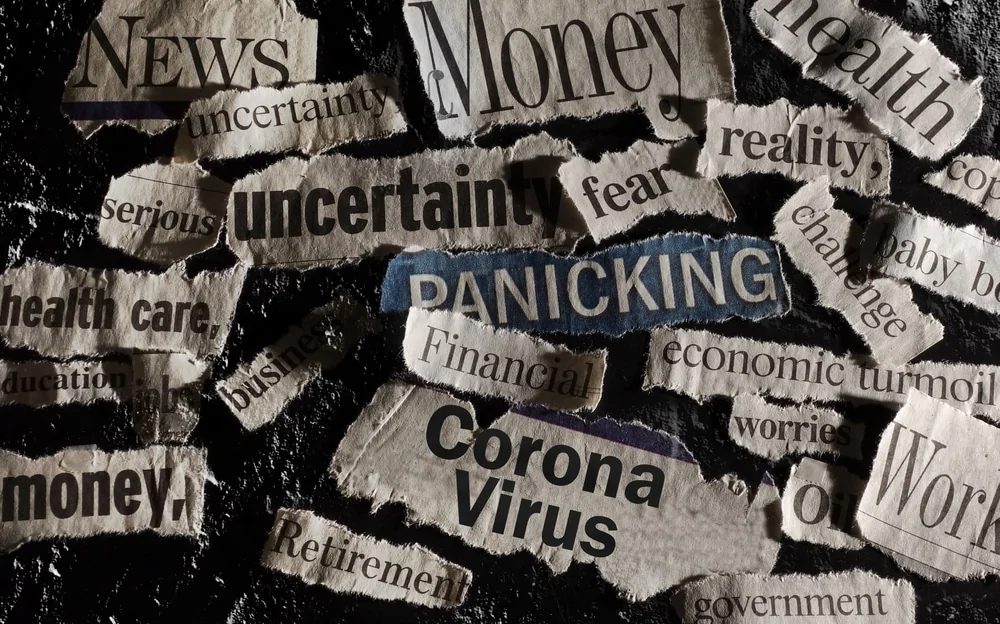In the age of constant connectivity and social media, the term “anxiety” has become a familiar buzzword, especially among young adults. With nearly two years of a pandemic that has disrupted daily life, anxiety has surged to unprecedented levels. But with the growing variety of treatment options, from medications to alternative therapies like THC and CBD, is there a better solution? The answer may surprise you: exercise. Recent research reveals that intense physical activity is, in fact, one of the most effective treatments for both anxiety and depression.
The Surge in Anxiety and Depression
The impact of the COVID-19 pandemic on mental health has been profound. According to the Kaiser Family Foundation, reports of anxiety and depression among adults have skyrocketed since 2020. Prior to the pandemic, about 1 in 4 adults reported experiencing anxiety or depression. By the beginning of 2021, that number had more than doubled, with nearly 4 in 10 adults affected. Anxiety, in particular, has become a prevalent issue, with many turning to social media to share their struggles and seek advice on managing it.
While various treatments are available, including prescription medications, marijuana products, and therapy, a growing body of evidence suggests that exercise could be the best answer for managing anxiety and depression. A recent study conducted in Sweden offers valuable insight into this emerging solution.
The Swedish Study: Exercise vs. Talk Therapy
In a randomized controlled trial, researchers in Sweden compared the effects of exercise and talk therapy on individuals suffering from anxiety and depression. The study involved 223 participants who were divided into three groups: one that received talk therapy, one that engaged in low-intensity exercise, and another that participated in moderate-to-high-intensity exercise. The results were striking.
The group that participated in moderate-to-high-intensity exercise experienced the most significant improvement. At the start of the study, most participants were dealing with moderate to severe anxiety and depression. By the end of the exercise program, their symptoms had improved to a mild level. These findings are particularly noteworthy because many of the participants had struggled with anxiety and depression for years—some for over a decade—and had been on prescription medications. For many, anxiety and depression were disabling conditions that had affected their ability to work and engage in daily life. This study is a reminder that exercise can be a powerful tool for those who have struggled with long-term mental health issues.
The Science Behind the Exercise
What makes exercise such a powerful treatment? The key lies in the intensity. In this Swedish study, participants in the moderate-to-high-intensity group aimed to achieve 60-94% of their maximum heart rate. For young adults, this meant reaching a target heart rate of around 146 beats per minute, while older individuals had slightly lower targets. The exercise regimen included circuit training with a mix of cardiovascular exercises like burpees, jump rope, and lunges, as well as resistance training exercises like squats, push-ups, and planks. The total workout lasted one hour, including a warm-up and cool-down period.
This combination of cardio and resistance training has been shown to activate various mechanisms in the brain that are linked to mood regulation. Exercise increases the release of endorphins, the brain’s natural “feel-good” chemicals, which help reduce stress and anxiety. Additionally, regular physical activity has been shown to improve sleep, boost self-esteem, and enhance cognitive function—all of which contribute to better mental health.
Why Exercise Works Better Than THC and Medication
In clinical practice, I’ve noticed an increasing trend of young adults using THC products to manage their anxiety. While these may seem like a natural alternative to prescription drugs, they come with their own set of problems. THC, while offering short-term relief, can often leave users feeling demotivated and lethargic, which can hinder their ability to engage in daily activities or seek additional treatment. Moreover, studies have shown that THC can increase anesthesia requirements for medical procedures and can lead to poorer sleep and pain management.
This is where exercise outshines other alternatives. While THC may provide temporary relief, it doesn’t address the root causes of anxiety and depression in the way that exercise does. Exercise not only improves mood in the short term, but it also offers long-term benefits by increasing overall physical health, improving energy levels, and providing a sense of accomplishment.
Moreover, exercise has a much lower risk profile than medications like anti-anxiety drugs and antidepressants, which often come with unwanted side effects such as weight gain, fatigue, and dependency. Exercise, on the other hand, can be done safely and effectively without the need for prescriptions or costly treatments.
When Exercise Isn’t an Option
While exercise is undoubtedly one of the best treatments for anxiety and depression, not everyone can engage in physical activity. For those with physical limitations or those who simply cannot exercise, the next best option is talk therapy. Cognitive-behavioral therapy (CBT), in particular, has been shown to be effective in helping individuals identify and change negative thought patterns that contribute to anxiety and depression. Therapy can also help people develop coping strategies and provide the emotional support needed to manage their mental health.
For those who are able to exercise but find it difficult due to pain or other issues, interventions like physical therapy or orthobiologic treatments (such as platelet-rich plasma injections) can help restore function and enable more active participation in exercise.
A Call to Action
In conclusion, exercise should be considered the “go-to” treatment for anxiety and depression. Not only does it offer immediate mood-boosting benefits, but it also provides long-term improvements in mental and physical health. If you can engage in exercise, it should be your first line of defense. If not, therapy is a valuable alternative. Medication, including THC products and prescription drugs, should be considered only as a last resort.
As we continue to navigate the challenges of mental health, it’s important to remember that sometimes the best medicine doesn’t come in a pill bottle—it’s something as simple and powerful as physical activity. Exercise is free, accessible, and one of the most effective ways to combat anxiety and depression. So, the next time you feel overwhelmed by stress, consider putting on your sneakers and going for a walk or a run. Your mind—and your body—will thank you.



